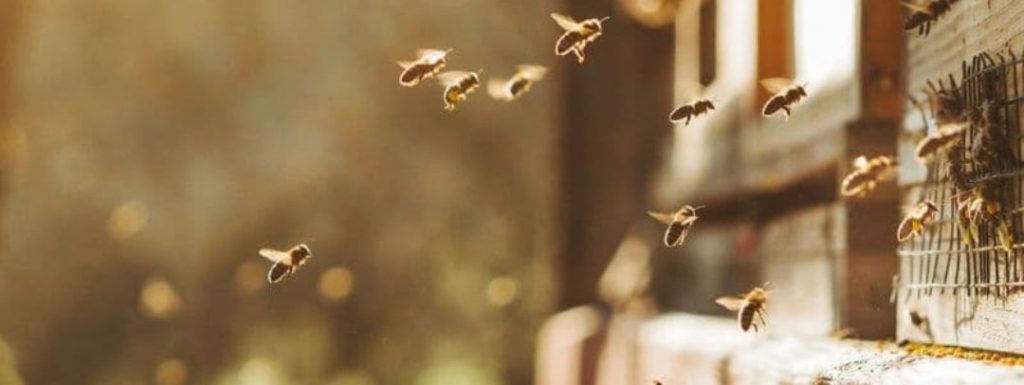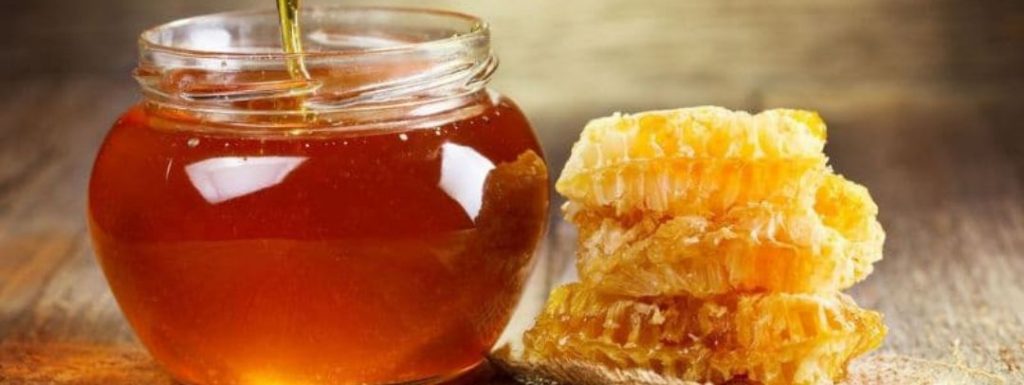What is honey?
Honey is a substance resulting from the collection process, by bees, of sweet secretions in plants, mainly nectar, and its subsequent maturity in the hive.
One of the most unique factors about honey is that, like all other living things, the biochemical composition of a plant species is unique. Therefore, the composition of the honey will have variations depending on the different species of plants that surround the environment of the hive.
How many types of honey are there?
A determining factor is, therefore, the diversity of plants existing in the radius of the hive (approximately 1.5 km).
If a species of plant predominates in this radius, then we are talking about monofloral honey. This means that there is a dominant species. In cases where there is no dominant species, we are talking about multifloral honey.
For example, let’s say that the hive is located in an area of undergrowth or scrubland, where there may be a thyme grove. In this case, since thyme is the dominant species, the collection will be thyme honey. An exceptional case is that of rockroses. The rockrose is a flower that does not have nectar, only pollen, and the resulting honey is known as thousand-flower honey.
How to make sure you buy quality honey?
Some of the most significant keys that the consumer can take into account when buying honey are:
- Go to a nearby beekeeper: The reason is obvious and it is that, logically, the honey will have a lower handling to be packaged. In addition, as a general rule, a greater freshness of this is guaranteed. One aspect to take into account is crystallization, which will be easier to produce when the temperature decreases.
- Buy honey from a guarantee brand: If it is not possible to go to a local beekeeper, it is always safe to buy honey from a guarantee brand. This company, in order to put its product on the market, has had to meet a series of conditions and quality filters that will assure the consumer of the quality of the product they buy.
- A correct reading of the label: Provides essential information about the product, as well as data that may be relevant to the consumer.

Does honey expire?
Honey is a non-expired product. Even so, the best before date that appears on its labeling must be taken into account. This is due to the fact that the closer the best before date approaches, the less its aroma will be.
How to guarantee that we buy fresh honey?
It is advisable to opt for honey from local producers, or those of closest origin according to the labeling.
In addition, the label provides information about the botanical origin of the honey: soft or more intense honeys depending on the plant that determines its composition. Without forgetting the D.OP. (Designations of Origin). The honeys that are labeled with this denomination have the guarantee of the EU and indicate their geographical origin.
Is honey an adulterated product?
Honey has been the subject of hoaxes, the result of misinformation, which ensure that it is one of the products that suffers the most adulterations. And anything farter from the reality. The consumer has the guarantee of the commercial brand that, in the process of elaboration of the finished product, the procedures and legal conditions established in the current regulations have been respected.

Are the most fluid honeys of more or less quality?
The fluidity of honey will depend mainly on its chemical constitution and its water content. The more fluid honeys have a higher aqueous proportion. This makes them more vulnerable to transformations. The proportion of water they contain will also depend on the color of the honey and, in addition, their flavor and market value.
There are, therefore, humidity limits established for this proportion in order to prevent the quality and attributes of this product from being lost. Although there are exceptions, the general limit of moisture in honey is 20%.
If the water content of the honey is less than 15%, it is likely that it will not reach its fine crystalline structure, hardening. Thus, it could not take advantage of or reach its full aroma potential.
Another relevant aspect that determines the flavor and quality of the product is acidity.
You may also be interested in:


